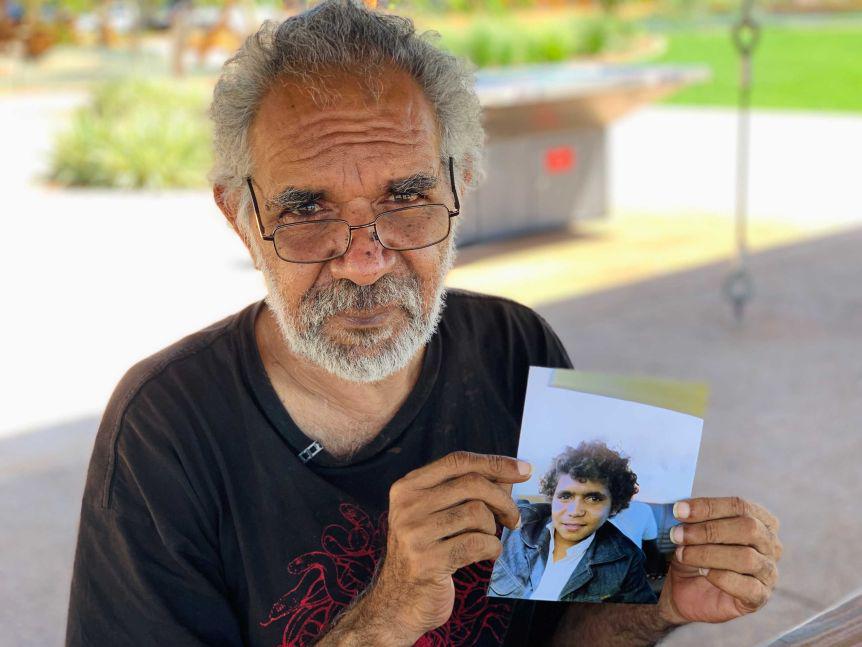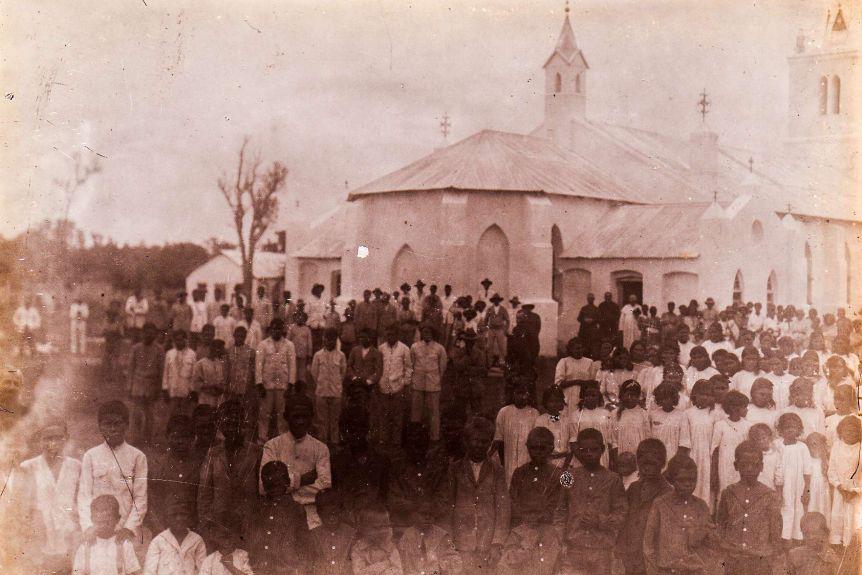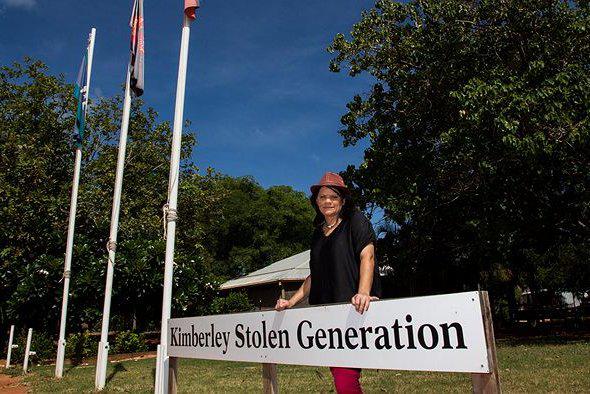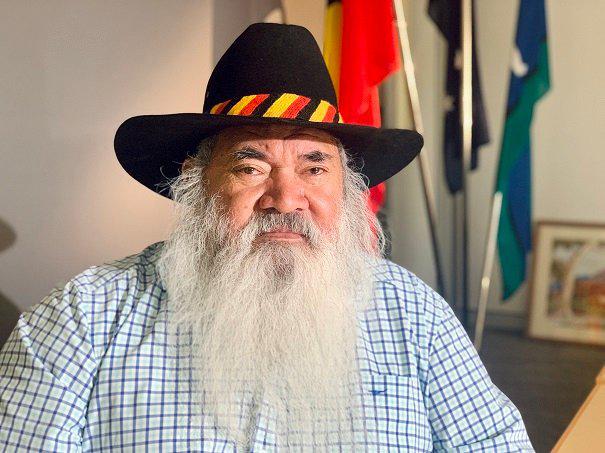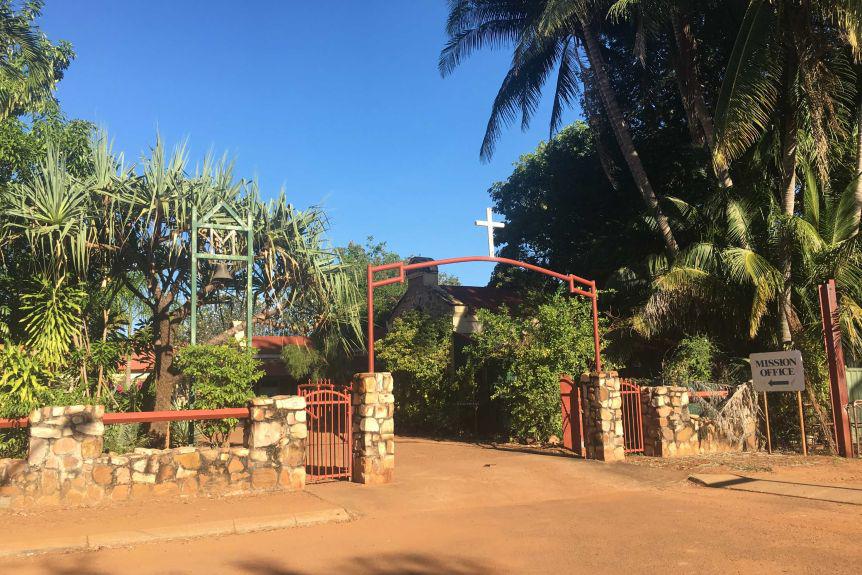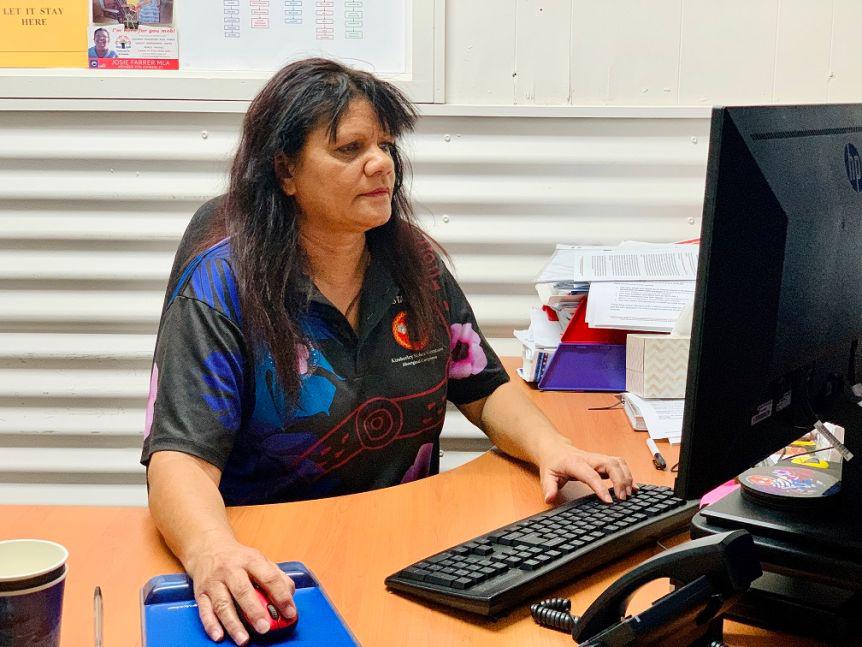|
National Redress Scheme applicant numbers lower than expected, prompting calls for urgent investigation
By Erin Parke
David Francis is waiting for a dollar figure to be put on the sexual abuse he suffered as a child growing up in Catholic institutions in Western Australia. "It's a bit weird, like the last chapter of your life being sort of sorted," he said. "Like your final pay cheque, and you won't have to talk about it anymore." The 58-year-old Nyul Nyul man was taken into state care at the age of six and — like thousands of other Aboriginal Australians — grew up in church-run missions. He does not like to talk about the details, but it was during this time that he says he was sexually abused. Now Mr Francis is waiting for a phone call from the National Redress Scheme to find out if his application has been successful. "If I do get a compensation payout, I'm going to get an old car and go bush where it's nice and peaceful," he said. He says he will leave the rest of the money to his kids and grandkids, so that something good may come of the bad times. Low numbers cause concernMr Francis is one of almost 8,000 Australians who have applied for redress compensation for acknowledgement of the sexual abuse experienced in institutional care. It is a much smaller number than was expected, leading to concern that some segments of the population — such as Aboriginal people — are not aware of the compensation scheme, or do not feel comfortable coming forward. Senator Dean Smith chairs the parliamentary committee that oversees the scheme. He said it was estimated that up to 60,000 Australians would be eligible to apply, and it was a surprise and a concern that the application numbers were lower than expected. "I think that two years into the operation of the scheme, we have a scheme that's poorly understood and recognised in the community," Mr Smith said. "We are taking a number of steps to address that, and one of the focuses for the committee in its two-year report will be what can be done to improve access to the scheme by Indigenous people." The independent review of the National Redress Scheme is underway, and is due to be tabled in Federal Parliament in February 2021. 'It's heartbreaking'Applying for redress is not easy — the application form is dense and requires a detailed description of the abuse experienced, which is distressing for many survivors. The Government is spending more than $50 million on support services to help people through the process, but community leaders say they are not reaching Aboriginal people in regional and remote areas. The case workers at the Kimberley Stolen Generation organisation in Broome are on the front line of efforts to help sexual abuse survivors tell their stories. Program manager Hanisi Fitzhardinge said many clients were traumatised, elderly, and struggled to source the basic information required to apply for redress. "We have clients coming to us who don't have any identification, who don't have a mobile phone, and they may speak very little English," she said. "They may be homeless, or moving around, so it's a matter of tracking them down every time an extra bit of documentation is required. "We have to take a holistic approach to managing their wellbeing — it's just the way it is in the Kimberley, so there's a lot more required than just filling out paperwork." The redress support contract also only covers the Broome area, meaning people across the vast Kimberley region have to rely on a calling a national telephone service for advice or counselling. Kimberley Stolen Generation CEO Tania Bin Bakar said that was not good enough. "It is heartbreaking that we can't help more people — we know there are lots of people who would come forward if they were able to sit down with us face to face," she said. "The low number of people applying is a red flag that needs to be investigated." 'They're entitled to justice'Another factor at play is the stigma and secrecy surrounding sexual abuse, which the National Redress Scheme is revealing to be a stronger factor in some communities than others. Senator Pat Dodson said it was exacerbated in remote Aboriginal communities that were created and run by Catholic church missions. "I'm not trying to condemn the church, but it was a big institution and it did have control and management of many young people's lives for a long period of time, and so many people remain very loyal to the church," he said. "If that is translating into people not wanting to criticise or report the abuse that someone may have suffered, then that would be a tragedy. "If sexual abuse did take place then people who suffered should have confidence that they can come forward — it's a big step, but it's the justice they're entitled to." While the royal commission into institutional child sex abuse proved cathartic for many Australian communities, it struggled to gain traction in more remote parts of Australia. In the Kimberley, only a handful of people came forward to give evidence, despite the large number of Stolen Generations members who passed through remote Catholic missions run by some of the orders with the highest number of offending priests, such as the Pallottines and Benedictines. In 2017, the Bishop of Broome, Christopher Saunders, told the royal commission that he was aware of only a single allegation of abuse — involving a priest from India — within the vast diocese. Mr Francis said many Aboriginal people felt pressure from family to stay quiet. "I think it's fear — either fear or guilt about talking out about the [Catholic] church," he said. "When people do try to bring it up and talk about what's happened, others will cut in and heckle them and say, 'That couldn't happen', because they don't want to hear a bad word about the church. "For me, redress is just this final thing, that'll mean I don't have to worry about it anymore."
|
.
Any original material on these pages is copyright © BishopAccountability.org 2004. Reproduce freely with attribution.
